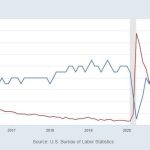Do you think money can buy happiness? I will not be definitively answering this age-old question today. However, we can all probably agree that a lack of money can quickly increase unhappiness. It is also safe to say it may be easier to be happy if you aren’t stressed out financially or working multiple jobs to make ends meet.
What Is Your Dream Gay Happiness Number
Gays & Lesbian couples, on average, earn more than our straight counterparts. This is primarily because we are more likely to be in double-income households. Two spouses working more hours typically translates into a higher overall household income. However, homophobia does extend to paychecks, and many LGBT+ people earn less than their straight counterparts for the same work.
We could expect to see large happiness numbers since many bring in above-average household incomes and don’t have the associated costs of raising children. A quick scroll on Instagram almost always shows someone on a fabulous, aka EXPENSIVE
IVE
Harvard Business School recently looked into this issue for the wealthiest Americans. Researchers asked 4,000 millionaires to rate their happiness from 1 to 10. The study showed those with more wealth rated themselves as happier on average. However, when asked what it would take to score a 10 (most happy), the majority stated they would require dramatic increases in their wealth.
What Will It Take for You To Feel Rich?
Americans believe it takes an average of $2.3 million in personal net worth to be considered “wealthy,” according to the 2019 Modern Wealth Survey from Charles Schwab. This number may seem outrageous to you (or it may seem low). Either way, this $2.3 million number is more than 20 times the median net worth of U.S. households, according to the Federal Reserve’s Survey of Consumer Finances from 2017.
These surveys did not break down responses by sexual orientation. With many in the gay community living on the expensive coasts or at least in the more expensive parts of their towns, many of us wouldn’t feel rich with a $2.3 million net worth. Alternatively, more to the point, many in the gay community wouldn’t love the lifestyle that the income from a $2.3 million net worth would reasonably generate in retirement. Assuming a 4% withdrawal rate, this would on average, mean about $7,700 per month of income before taxes are considered. That’s not exactly starving, but it won’t allow you to fly business class and own a single-family home in much of Los Angeles.
Does Happiness Really Top Out At $75,000 of Income?
With over 20 years of helping members of the LGBTQIA+ community work toward financial freedom, I will say definitively that $75,000 is not the income that will bring optimal happiness. That being said, I am a gay financial planner living in West Hollywood, which has a well above-average cost of living. Even with this in mind, I do think most people in the gay community could increase their happiness by increasing their incomes beyond the $75,000 amount.
In case you didn’t know, a now-famous study from 2010 found that the emotional well-being of average earners topped out at around $75,000 per year. Let’s be real; someone whose income jumps to $75,000 will be much happier than someone whose income is slashed to $75,000. I remember right after college saying, “If I can just find a job for $60,000, I will be set.” Let’s just say that I would struggle on $60,000 today.
Whether you are LGBT or not, making just $75,000 in Los Angeles, San Francisco, Austin, Miami, or New York will be rough on your budget. Throw in car payments, a mortgage, and necessities like eating; you will likely struggle financially. Financially struggling doesn’t an extremely happy gay person make.
While I don’t think $75,000 is the LGBT happiness number, you may not need exponentially more money to increase your happiness.
Being WEALTHY Versus A High INCOME
I need to remind you that income and wealth are not the same thing. There are many people out there who look and feel wealthy but who are still living paycheck to paycheck. The overly expensive car is leased, the luxury high-rise apartment is rented, and the seemingly glamorous vacation is racking up more credit card debt. Or, perhaps, in the time of social media, they merely took a photo at the Four Seasons but are staying at a more affordable hotel.
Building wealth comes from spending less than you make. The car is likely being purchased or is already paid off. There is home equity, but you still probably have monthly payments to an affordable mortgage. Vacations are likely still put on a credit card, but the bill is paid before sky-high interest rates kick in. Additionally, current and future wealthy individuals are saving at least 10-20% of their incomes into retirement accounts or other investments.
Would Your Life Change If Your Income Doubled?
Would doubling your income increase your happiness? The answer is probably yes for most people, especially if this does not include doubling their stress or working time. What would your life look like if you were able to earn 10 times your current salary?
A Harvard study revealed 27% of millionaires thought they would need to increase their wealth by 1000% to achieve peak happiness. Only 13% thought they could be perfectly happy with their current level of wealth. Some of these people could benefit from looking at spending in ways that bring happiness. Looking to cut spending on things that aren’t improving their quality of life could also be beneficial.
What steps can you take today to find your gay happiness number and, more importantly, get on track to achieve that amount of net worth?
Read the full article here




